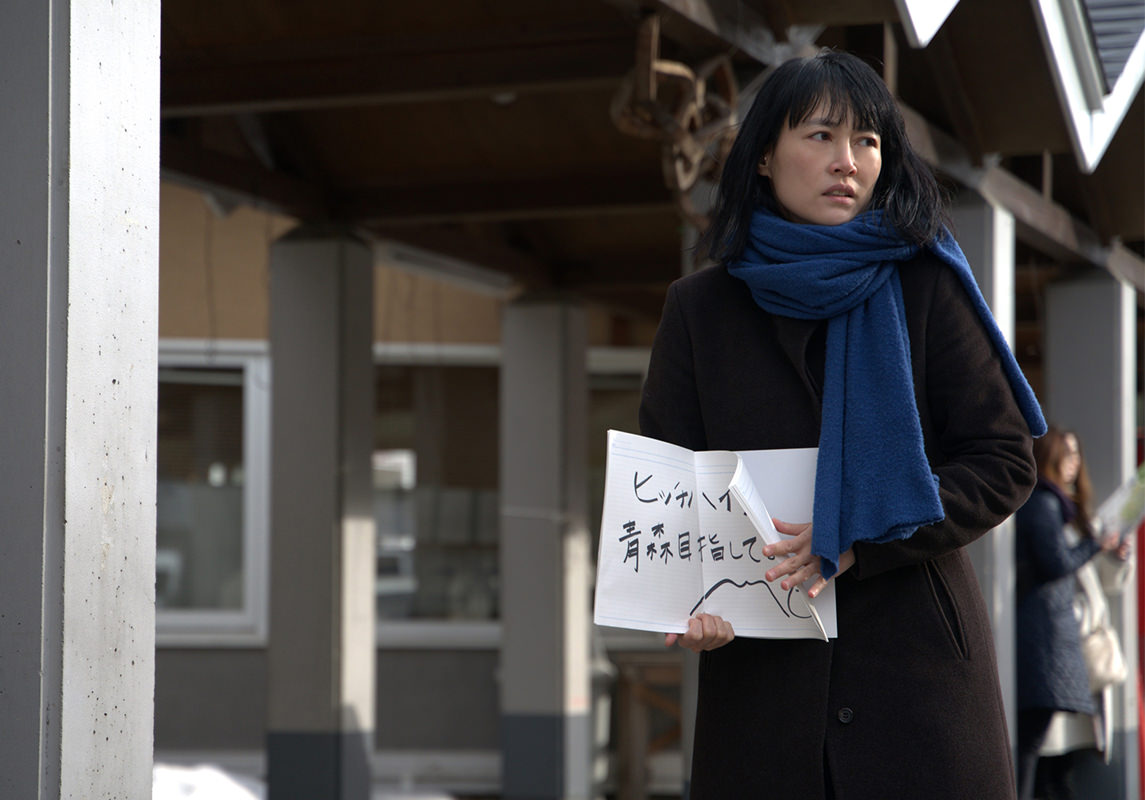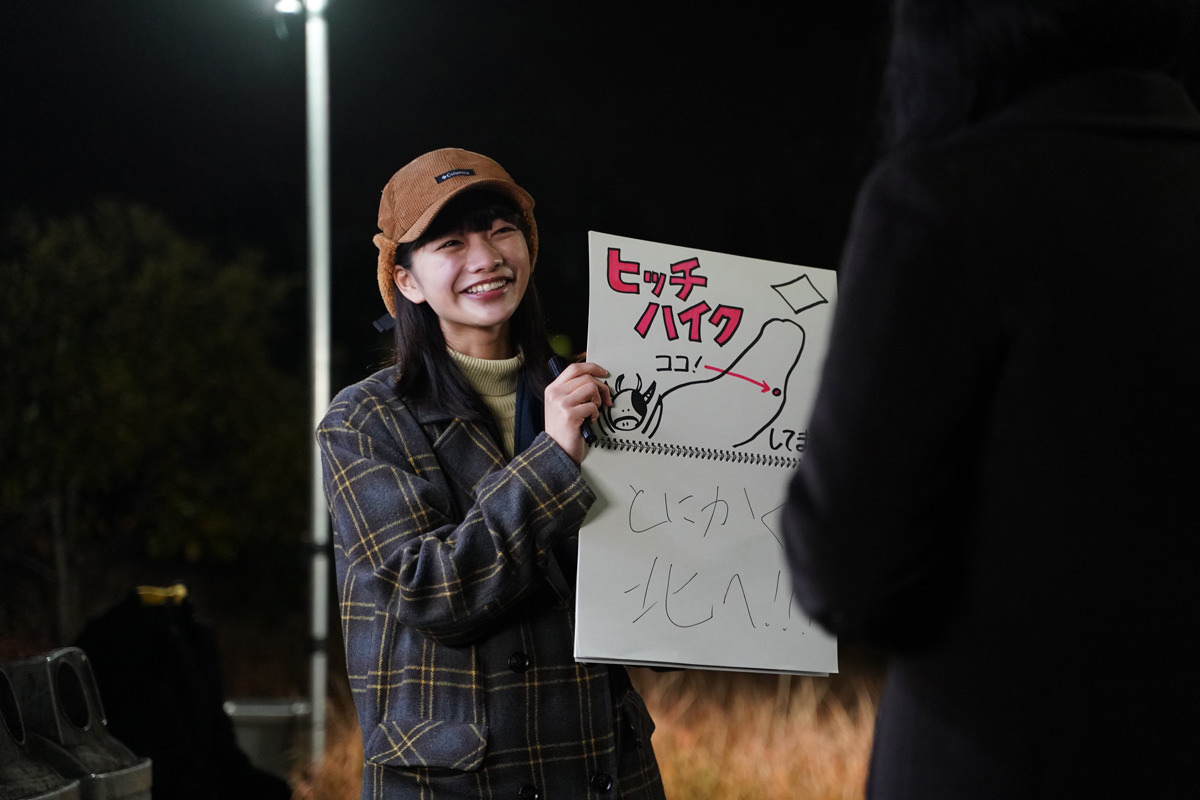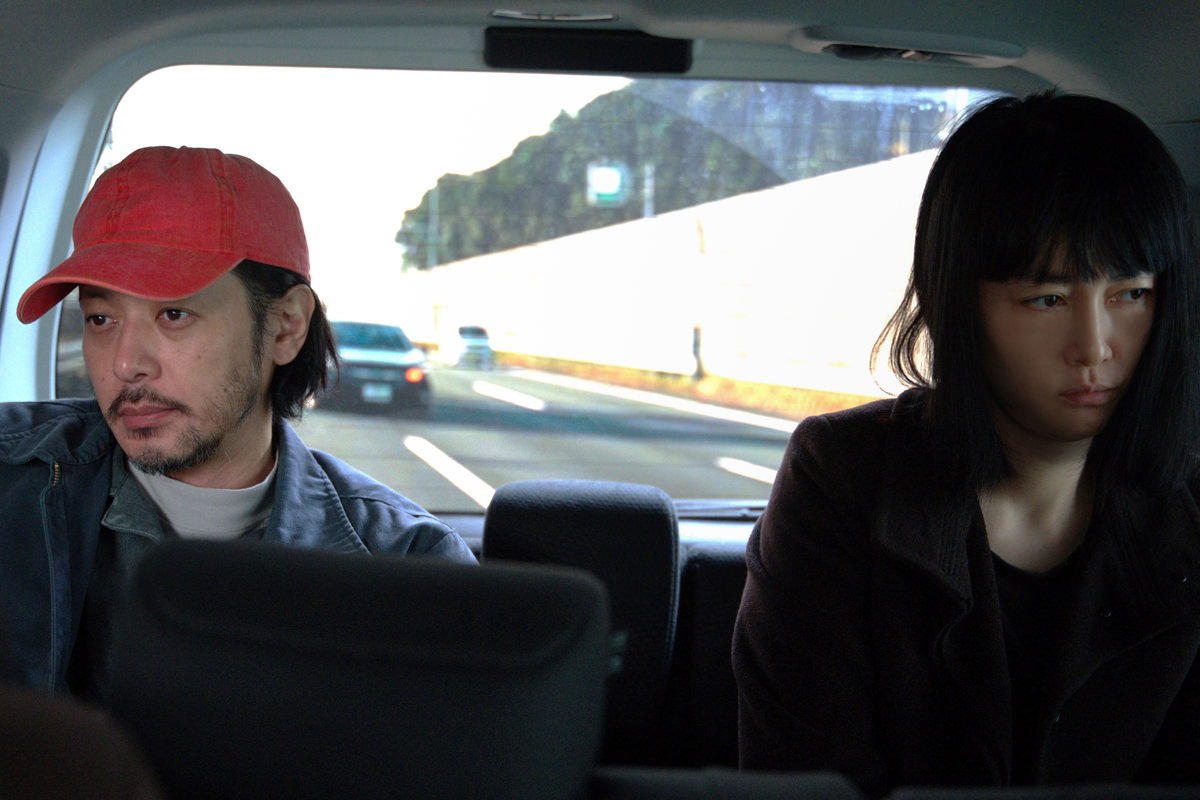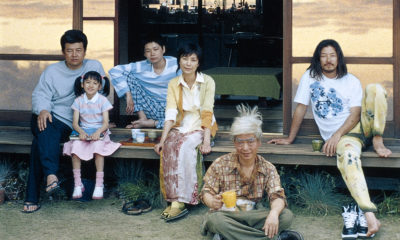Published
1 year agoon

This YOKO movie review contains spoilers.
Let’s cut right to the this picture’s polarizing centerpiece. ‘YOKO’ (as the movie is called stateside) contains one of the most depressing scenes of all time… A demure, introverted female hitchhiker is coerced into silently ‘giving’ her body in exchange for a distant ride to her father’s funeral.

Photo Credit: © 2022 “Yoko” Film Partners
The way the scene plays out is a seemingly ‘respectable’ journalist offers a deserted Yoko a car ride to the North. Even sympathizing with Yoko’s father’s passing with his own sorrowful recollections of mourning a parent’s death.
Yoko then meekly falls asleep, feeling safe with the stranger… When he stops the car mid-way and demands a “negotiation” while physically restraining a struggling Yoko violently.
He says they can either do a ‘pleasurable thing’ or he’ll drive Yoko right back to the parking lot she started from. The disgusting man even jokes about Yoko being an introvert and having issues making direct eye contact. Mocking Yoko’s vulnerability to communicate with the outside world as a hikikomori of a considerable period.
Normally, in a western movie at this point, you’d expect some kind of immediate revenge or external save from a good Samaritan/hero. But instead the next scene in ‘658km, Yoko no Tabi’ cuts to a shocking overhead bedroom view of Yoko being exploited with an expressionless face.
It’s a savagely brutal moment and you feel overwhelmed with revulsion and anger at what’s happening to Yoko. Who looks like she’s dead inside during this scene…
Actually, you might want to leave the theater here altogether. But it’s important to note these kind of exploitations happen to women every day, especially women without means. The homeless and forgotten. Or as is often said in this movie when Yoko desperately asks for help, “Just ignore her!” Looking away is easy, even as an audience member.
During Yoko’s journey as a hitchhiker one thing is for certain, people are always coming up with excuses not to help or not to assist fully. Early on, a woman played by Asuka Kurosawa (who starred in Director Mayu Nakamura’s film ‘Intimate Strangers’) can simply take Yoko all the way to her destination.

Photo Credit: © 2022 “Yoko” Film Partners
But despite Yoko’s obvious desperation and fragility, she chooses to leave her at a parking lot. Even an elderly man who tells Yoko, “getting into cars with strangers is dangerous”, still doesn’t tell his wife, ‘let’s just drive her all the way!’

Photo Credit: © 2022 “Yoko” Film Partners
The primary flaw in ‘658km, Yoko no Tabi’ is that at any time it seems Yoko can call her aunt to be picked up. She’s able to use a payphone, a hitchhiking runaway teenage girl who befriends her has a cellphone that keeps ringing. Yoko could even simply call the police for assistance. But she doesn’t.

Photo Credit: © 2022 “Yoko” Film Partners
Rinko Kikuchi is fantastic in her acting performance. But as an overlaying plot, too much suspension of disbelief is required for ‘658km, Yoko no Tabi’. Yoko’s family never gives her a replacement phone (hers is broken) in case of emergency.
In fact, they simply give up looking for her a rest stop after modest searching. “Maybe she got on the bus?” Again, the suspension of disbelief needed to believe Yoko’s own family would leave after mildly searching for her breaks immersion of the overall plot. Despite, the movie’s otherwise heightened realism. It’s a strange contrast.
However, scene to scene ‘658km, Yoko no Tabi’ is a powerful statement on how those perceived to have lower status are treated like they’re invisible. As if they have no name, no feelings, and are disposable ghosts. The film also brings about an uncomfortable conversation on sexual coercion & intimidation that needs to happen in society. Not silenced.

Photo Credit: © 2022 “Yoko” Film Partners
– YOKO will screen its US premiere at New York City’s IFC Center on Thursday, February 22 at 7:00 pm. You can buy tickets at IFC Center. YOKO is part of the ACA Cinema Project’s series, ‘Family Portrait: Japanese Family in Flux’.
– More Japanese Movie Reviews!
Nir Regev is the founder of The Natural Aristocrat. You can directly contact him at [email protected] for coverage consideration, interview opportunities, or general comments.



IFC Center in NYC to screen new Japanese Films


The Taste of Tea movie review: Soothing journey of life & finding serenity within it


Austin Amelio talks Dwight’s return at Split Screens Festival (Interview)


Colman Domingo talks Victor Strand at Split Screens Festival (Interview)


Ian McShane leaves door open for more Deadwood at Split Screens Festival


Pollyanna McIntosh talks Darlin’ at NYC premiere (Exclusive Interview)
The Natural Aristocrat